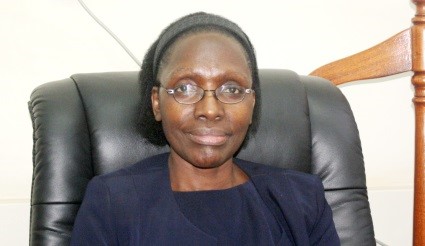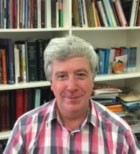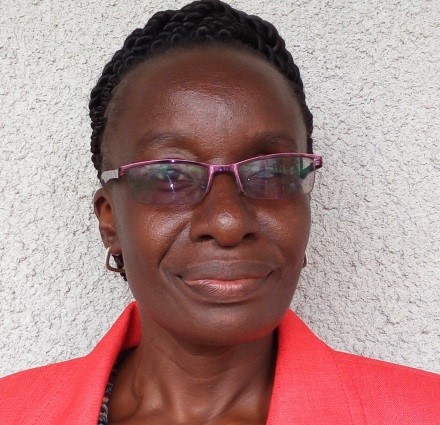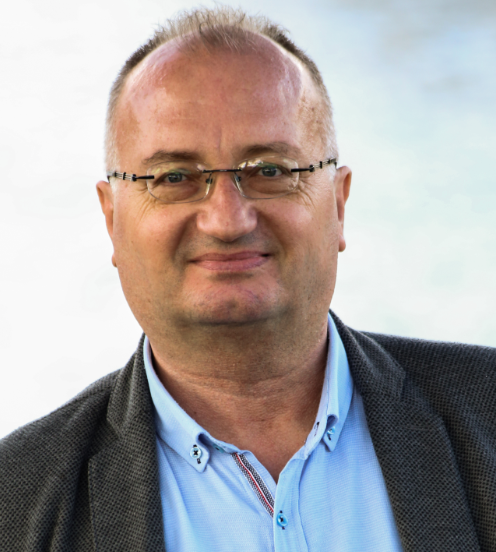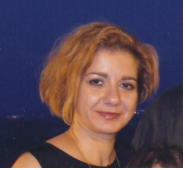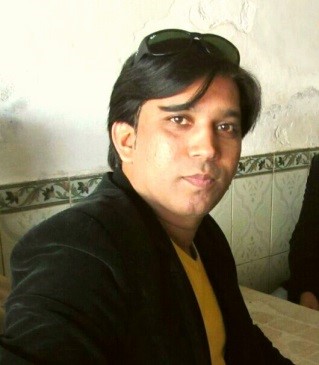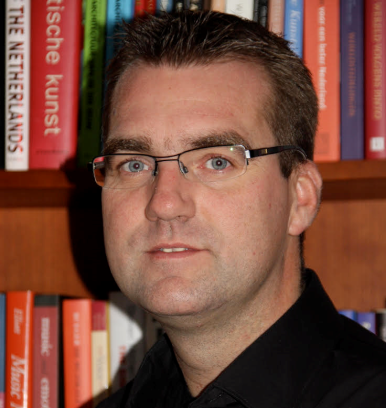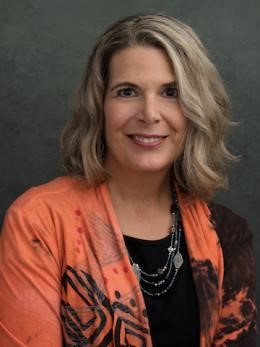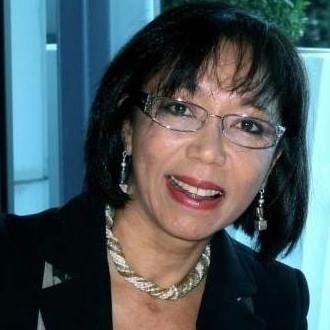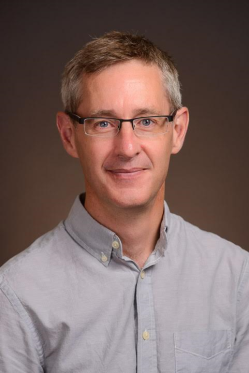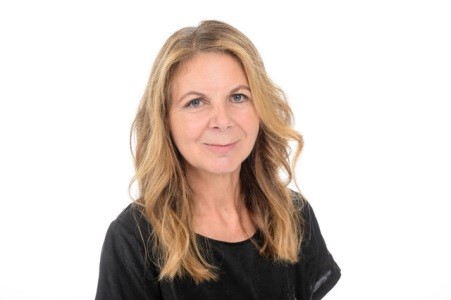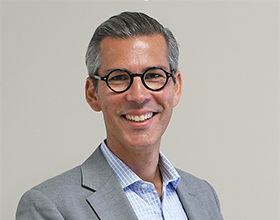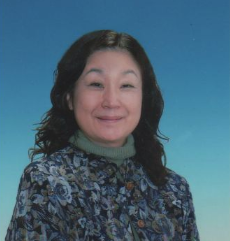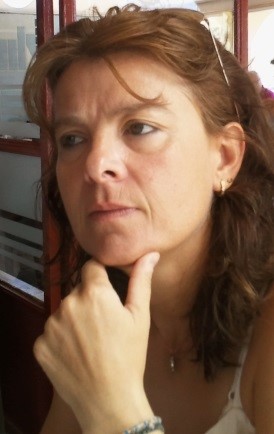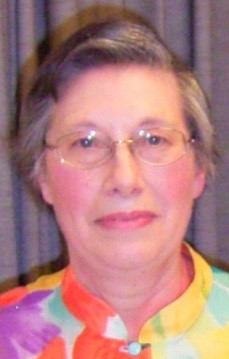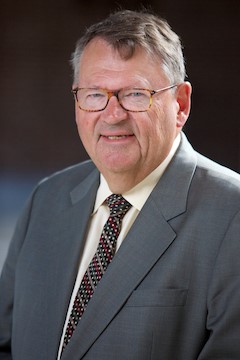The new ISME Board will commence at the General Assembly in July 2018. Thanks go to the outgoing Board for their service, in particular Sheila Woodward who now finishes her six year term and stands down as Past President.
Here is the list of nominees for the 2018-2020 Board and President Elect.
Note: Lee Higgins automatically moves to Past President and remains on the Board. Susan O'Neill automatically moves from President Elect to President.
The voting link is at the foot of this list.
Voting will close at 10am in Baku (6am GMT/UTC) on Wednesday 18th July 2018.
Nominees for President Elect
The President Elect joins the Board for six years: two years as President Elect, two years as President and two years as Past President.
There are two candidates. Choose one on the voting page.
Emily Achieng’ Akuno (Kenya)
Emily Achieng’ Akuno, Biographical Statement
Emily Achieng’ Akuno is a Kenyan citizen who studied music at Kenyatta University under the Bachelor of Education programme, at Northwestern State University of Louisiana (performance) and Kingston University in Surrey, UK. She has taught music in high school in Kenya and at university in Kenya and South Africa, doubling up as an academic administrator in both countries. Emily is currently in charge of academic affairs at a newly established Co-operative University of Kenya, where she is working towards initiating music programmes under creative and cultural industries programmes.
Since the Policy Commission meeting in Nairobi in 1998, at which she played host to the participants for one of the seminar days, Emily has participated in ISME conferences systematically attending at least a Commission, and often both commission and conference programmes. Subsequently, she joined PASMAE and has participated in a number of the regional body’s conferences. She is a past Commissioner and Chair of MISTEC, and ISME Board member, where she served as Interim Secretary General for 6 months. She is currently President of IMC, to which ISME is a member organisation.
Emily has had the privilege of working on two ISME and SEMPRE supported music education development projects. The African Music Education Project documented song material for use in teaching children from Kenya, Zambia and South Africa, while the Music for Literacy Development worked with teachers and children to develop methods and resources for enhancing children’s literacy and linguistic skills using children’s songs in Kenya.
Emily Achieng’ Akuno, Personal Statement
Having had the privilege of working closely with the MISTEC Commission and the ISME Board with affiliated regional body PASMAE, my observations point to an inexhaustible wealth of knowledge, power and potential authority in the world’s music educators as shapers of human relations and attitudes, hence influencers of human development. I see in ISME members the potential to greatly impact on policy and practice, at international and local levels, in matters that affect how authorities view and provide for education, especially arts-based or music-led education. My intentions are to build on work done by previous boards, ISME special committees, INAs and individual ISME members in not only lobbying and advocating for music education, but also to contribute to decisions on the place accorded music and musicians on various nations’ development agenda.
ISME thrives on members – all types of members. The notion that everybody matters, and each person has a contribution to make, is at the core of my desire to see more involvement of the world’s music educators in projects that enhance participation in music programmes at local and international levels. I see member empowerment and capacitation initiatives that will further the effect of those currently in place, supported/powered through collaboration with industry players and philanthropists whose objectives resonate with ISME’s. Regional collaboration among members and partnership between member associations and relevant regional development bodies are two areas of ISME’s outreach that I believe could be enhanced in the next few years, to help further the Society’s mission.
David Forrest (Australia)
David Forrest, Biographical Statement
Dr. David Forrest is a Full Professor in Music Education at the Royal Melbourne Institute of Technology (RMIT University). Since his appointment to this institution in 1992, positions held have included Head of Department and Director of Higher Degree Research. Since 1995 he has been a member of the Executive of the Australian Society of Music and editor of the Australian Journal of Music Education. He was honoured as the inaugural Fellow of the Australian Society for Music Education and an Honorary Life Member of ASME in 2015. He was an ISME Board member (2006 to 2010), and from 2012 has been Chair of the Publications Standing Committee overseeing the submission and review systems for the international conferences in 2014, 2016 and 2018. In 2004, as Chair of the Commission on Music in Cultural, Educational and Mass Media Policies, he convened a highly successful seminar in Puerto de la Cruz, Tenerife. He has edited publications for the Commission’s seminars in Nairobi (1998), Helsinki (2002), Puerto de la Cruz (2004, English/Spanish) and Bologna (2008). He has contributed papers to the MISTEC and CEPROM commissions, and presented papers at every ISME conference since 1994. He continues to be a member of the Editorial Board of the International Journal of Music Education. He has published three books on the former ISME Honorary President, Dmitri Kabalevsky, and six books on doctoral education in music and the arts. His research interests also include curriculum, policy development, the school and the studio teacher, and arts management.
David Forrest, Personal Statement
I would bring to the position my skills as a strong advocate for music education, and my ability to initiate and implement policy. I believe in engaging the broad ISME community in decision-making. I am committed to music education internationally and to the role of ISME in supporting music education in all of its manifestations. Over several years I have developed a network throughout the ISME membership and, I believe, have earned considerable professional respect across a broad spectrum of ISME members – essential, I believe, for the role of President. I am particularly committed to advocating the role of the non-English speakers of ISME in order to continue to develop a broad cultural perspective. I am also committed to enabling members from across geographic and economic areas to contribute to the governance of our society. Although our world is diverse, we share many common goals for music education; at the same time we must respect cultural and national differences. These goals and the support of ISME enable us to advocate the cause of music education to our governments and within our institutions. I want music education to be an accessible and positive force in the lives of all people throughout the world. As music educators, who work in many different facets of music education, we all have a role to play if we are to achieve this goal. ISME has an important role to play in this respect – one that I want to continue to strongly foster.
Nominees for Board Member
Board members are elected for the biennium commencing at the General Assembly at the 33rd World Conference in Baku and ending at the General Assembly at the 34th World Conference in Helsinki. There are 17 candidates. Choose up to 12 on the voting page.
Elizabeth Achieng’ Andang’o (Kenya)
Elizabeth Achieng’ Andang’o, Biographical Statement
Dr. Elizabeth Achieng’ Andang’o is a lecturer in Music Education in the School of Visual and Performing Arts, Department of Music and Dance at Kenyatta University, Nairobi, Kenya. She teaches postgraduate and undergraduate courses. She has been a member of ISME since 2006 and has presented at all ECME pre-conference seminars and ISME conferences since then. She served as a commissioner in the ECME Commission from 2010- 2016. She has published refereed articles and book chapters on various aspects of music education including policy; pedagogy; multicultural music education and community music. She has also presented papers at Pan Africa Society of Musical Arts Education and Kenya Association of Musical Arts Educators. She is a member of the Editorial Peer Review Board of Perspectives Journal of the Early Childhood Music and Movement Association (ECMMA).
Elizabeth Achieng’ Andang’o, Personal Statement
My relationship with ISME goes back to 2006 when, as a PhD student, I attended my first ECME seminar and ISME conference. The connections with music education scholars and practitioners with wide-ranging interests resulted in mutually beneficial professional relationships. I firmly believe that as many music educators and students as possible should benefit from such interactions. As a Commissioner in ECME for 6 years, I noted a gap in the participation of African music educators and practitioners in ISME and its affiliate forums. If elected to the ISME Board, my priorities would be to advocate for the strengthening of music education in Africa through music professional development, particularly for early years and primary school educators; to continue mentorship of younger music scholars through collaborative research initiatives and academic publication in pedagogy and resource development; and working with other affiliate music organizations to promote cross-cultural interactions among music educators and practitioners.
Ugur Alpagut (Turkey)
Ugur Alpagut, Biographical Statement
Dr Uğur Alpagut has been a member of ISME’s Board of Directors since 2016. He is the Chair of the Conference Organising Committee for the ISME World Conference to be held in Baku in 2018 and is the ISME Turkic World Representative. His career began in 1988 at Turkey’s first private university, Bilkent, renowned for training artists, as a lecturer and an administrator. Thus he gained significant experience at a young age, in two roles.
Since 1994 he has worked at the young, dynamic Abant Izzet Baysal University in Bolu, acting as a bridge between Ankara and Istanbul. He founded the Anatolian Sun Ensemble and has performed as a violinist in many countries and at ISME World Conferences. He has furthered his academic and artistic qualifications with social, cultural and scientific interactions/productions, presenting all of these to the world through his publications.
Ugur Alpagut, Personal Statement
As a prospective ISME Board 2018-2020 member I plan to make the following contributions:
- Organise the first ISME Global conference on worldwide peace and culture in order to impact Eurasia and the Middle East by leveraging my experience and organizational skills. I wish to offer support and data to the ISME Executive Committee and to generate and implement ideas, also assuming practical responsibilities.
- As the Secretary General of the Turkic World Music Educators Association (TURKMEB), play an instrumental role in strengthening the relations between ISME and the Turkic Republics, contributing to the promotion of ISME across the (thus far) underrepresented vast region stretching from Turkey to China.
- Foster links between different music professional associations/institutions and other persons/entities to ensure direct interaction with ISME.
- Expand the ISME mission and vision across Turkey and the Turkic world, creating a tradition through lasting relations.
Smaragda Chrysostomou (Greece)
Smaragda Chrysostomou, Biographical Statement
Smaragda Chrysostomou is Professor of Music Pedagogy and Didactics, at the Department of Music Studies, University of Athens, Greece, where she teaches undergraduate and postgraduate courses. She teaches at the Distance Learning MA course on Music Education, University of Nicosia, Cyprus. An ISME member since 1994, regular presenter in conferences and MISTEC Seminars, hosted the MISTEC Seminar in 2012 in Komotini, Greece and is currently commissioner of the Music in the Schools and Teacher Education Commission (MISTEC). She was one of the key experts responsible for the new National Curricula for Music in both Greece and Cyprus. She leads the Aesthetic Education Team in the nation-wide project for media-enriched textbooks. She is a member of Advisory and Editorial boards -among others- of IJEA, IJME and Greek journals Mousikopaidagogika and Music in Primary Education, as well as the International Handbook of Research in Arts Education (Bresler, 2008).
Smaragda Chrysostomou, Personal Statement
Music is vital to all human beings and as music educators we have the privilege and the responsibility to provide meaningful musical experiences for all. Since my first ISME conference as a young PhD student in 1994 and through my participation in conferences and Commission Seminars all these years, I have found friends who share the same passion and similar ideas and was empowered and inspired by interacting with fellow music educators from around the world. During my service on the Board of Directors in the last two years I had the privilege to experience ISME's mechanism from the inside and realize the amount of work that is needed. Representation is crucial for as many voices as possible to be heard on all levels of ISME's structure, so that music teachers and music educators from around the world can experience the transformative power that this global community can offer.
Marc Duby (South Africa)
Marc Duby, Biographical Statement
With a career as a professional bassist and composer/arranger beginning in Cape Town, South Africa, in the 1970s, I have been involved in music higher education for the last three decades, teaching at universities of technology since the late 1980s and moving into more formal academic spheres of research and postgraduate supervision in the last decade. I serve as board member for SA Jazz Educators Association and New Music SA and have amassed a great deal of experience as an adjudicator and external examiner for a number of HE institutions both locally and abroad.
Recent international live performances include Amersfoort Jazz Festival (the Netherlands, 2016). I edit the Taylor & Francis journal Muziki (SCOPUS) and serve as editorial board member for IJME (since 2012) with the current role of research professor in musicology at the University of South Africa.
Marc Duby, Personal Statement
Should my election be successful, I would envisage my service to ISME to consist of representing my country’s interests and the broader interests of the African continent in the music education and research spheres. I will lend personal and official support to initiatives to host the 2022 35th ISME conference in Pretoria, an important move in recognising the contributions made by organisations such as SASMT, PASMAE, and ISME in developing music education on the African continent.
My experience as a performer and jazz educator will, I believe, be beneficial to the inclusion of voices largely outside mainstream western art music education, such as those who operate within and emerge from traditions based on tacit knowledge as opposed to more literal notions of music literacy.
Gareth Dylan Smith (UK)
Gareth Dylan Smith, Biographical Statement
Gareth Dylan Smith is Manager of Program Effectiveness at Little Kids Rock, and Visiting Research Professor at New York University (USA). He has taught Kindergarten through to doctoral candidates, recently teaching research methods, sociology, music education history, and popular music pedagogy. He has worked primarily in the UK, USA and Malaysia. He has performed, taught, and recorded worldwide, and presented research on five continents. As a drummer, sociologist, and educator-scholar, Gareth’s principal research interests lie in popular music, identity, gender, punk pedagogies, music-making and leisure, and intersections of ethnomusicology and music education. He has been an ISME member since 2008, when he attended the World Conference in Bologna. He has attended each biennial conference since. Gareth was a committee member of the Forum on Instrumental and Vocal Teaching and Learning, 2008-2012. He chairs the Popular Music Education Special Interest Group, and is President of the Association for Popular Music Education.
Gareth Dylan Smith, Personal Statement
I am a firm believer in and staunch advocate of ISME’s mission of supporting and promoting music education and music making for all. Throughout my experience teaching in primary and secondary schools, in higher education, and working on program evaluation in the non-profit sector, my focus has aligned with this goal. From my research on identity, gender, assessment, and understanding music learning outside school, to publications on music making and leisure, punk pedagogies and democratized access and participation, I am dedicated to helping create and curate meaningful music making experiences for more people. My current work with Little Kids Rock is concerned with celebrating and nurturing the musicians we all are, and on the utility of music for the good of schools and communities. I feel privileged to spend my life in music, and feel compelled to share music’s joy and abundance with others – their music, my music, our music.
Arthur Gill (Pakistan/UK)
Arthur Gill, Biographical Statement
Arthur holds a BA in Music from the University of Punjab, Pakistan and a Post Graduate Certificate in Music and Special Education from the University of Roehampton, London. He is the Music & Special Education Teacher at the Special Education Centre for Visually and Physically Handicapped Children in Gujarat City, Pakistan and works across the country as an advocate for music education. He currently runs music education projects across Gujrat City with 500+ children creating music in English, Urdu and Punjabi. He covers a diverse range of musical instruments including keyboard, harmonium, tabla, dholak and sitar. He has presented with Dr Donald Devito at the 2010 National Association of State Directors of Special Education, Nashville Tenessee and at the Florida Council for Exceptional Children. His work is covered in the book Community Music Today and a range of local and international publications. Arthur’ Pakistan Project won the 2017 IMC award.
Arthur Gill, Personal Statement
I, Arthur Gill, a special education and music teacher in Gujrat City, Pakistan, in the implementation of a longitudinal study to develop special education and inclusive arts based programs in multiple centers for children with disabilities in Pakistan. I have started a Project of promoting music education for special children in Pakistan in 2010 with the support of Society of Education Music and Psychology research (SEMPRE) UK and International Society of Music Education (ISME).
Being a part of ISME since 2005 I have been involved with ISME CMA activities and musical developments for the children with disabilities in Pakistan. As a part of ISME board of directors, It will give me an opportunity to represent my region that belongs to Low HDI countries and a miserable part of world where there is a lot of challenges to promote music education.
Michel Hogenes (Netherlands)
Michel Hogenes, Biographical Statement
Michel Hogenes studied Electronic Organ and Music in Education at the Alkmaar Conservatory (The Netherlands), and obtained certificates in Ortho(ped)agogische Muziekbeoefening, as well as Keyboards, and Early Childhood Music Education. He obtained a PhD in Educational Pedagogy at the VU University in Amsterdam. After his studies, Michel worked as a music educator in special education, elementary education, and secondary education. He also taught keyboards and electronic organ at a music centre and was active as the conductor of several choirs and orchestras.
Currently Michel is a lecturer at the teacher education department, and researcher in the research group Youth and Development of The Hague University of Applied Sciences. He also lectures at the Music Education Department of Codarts, Rotterdam University of the Arts, and is the conductor of a community choir. Besides his work at both universities of applied sciences and his choral conducting, Michel is active in several organisations.
Michel Hogenes, Personal Statement
Music education can be seen as a way of introducing children and young people into their cultural community’s music. It is often intercultural and interdisciplinary, enables inclusive excellence, develops creative thinking by approaches that include music composition, improvisation and creative listening, as well as music performance. I share ISME’s mission to promote music in the education of people of all ages throughout the world. One of the major questions for me as teacher educator is how teachers and music specialists can discover, nurture and stimulate talents of the people they work with. For me personally, ISME is highly significant because all people deserve to discover their musical talents and should get the chance to develop these talents, enjoy music and to take part freely in the musical life of the community. I would be honored to contribute to ISME as a relevant and strong society for the contemporary world.
Jody L. Kerchner (USA)
Jody L. Kerchner, Biographical Statement:
Dr. Jody L. Kerchner has been actively engaged in ISME since 1998, serving on the editorial board of the International Journal for Music Education, as Music in the Schools & Teacher Education Commission (MISTEC) member, and MISTEC Chairperson (2010-12). Kerchner is Professor of Music Education and Director of the Pedagogy/Advocacy/Community Engagement (PACE) Division at the Oberlin Conservatory of Music. She is an award-winning secondary school music and choral music education specialist at Oberlin and founder and conductor of the Oberlin Music at Grafton (OMAG) Choir, an all-male prison choir. Prior to teaching at the university level, Kerchner taught K-8 general and choral music the United States. Her research areas include: creative music listening, reflective praxis, arts access as social justice, teacher education identity development, and authentic assessment practices. She has authored/co-authored books, book chapters and articles, some which appear in MISTEC Symposium Proceedings since 2000.
Jody L. Kerchner, Personal Statement
I have been a member of ISME since 1998. Becoming a member of the ISME Board would, therefore, be a natural extension of my MISTEC commission work and an opportunity to contribute to the inner workings of ISME for the benefit of its membership. I have been a MISTEC Commissioner/ Chairperson, on the IJME editorial review board. In my professional life in ISME and elementary, secondary, and tertiary music education, I have demonstrated success as a musician, educator, and researcher with the purpose of bringing people together to make music in spaces that celebrate the essence of humanity. I enjoy designing and leading innovative and collaborative music projects in schools and the community. I value learning from my colleagues and contributing to professional collaborations that have stemmed from my involvement in ISME/MISTEC. It would be an honor to serve you as a member of the ISME Board.
Magali Kleber (Brazil)
Magali Kleber, Biographical Statement
Dr. Magali Kleber is a retired professor at the State University of Londrina. Kleber is senior piano specialist and holds a master's and doctoral degree in music education and postdoctoral in ethnomusicology. Her doctoral thesis was nominated for award of the Brazilian Foundation "Coordination of Improvement of Higher Level Personnel", being one of the references in the field of social projects in music. She is currently member of the Board of Directors of ISME and president of the Londrina Music Festival Association. She was president of the Brazilian Music Education Association (ABEM) from 2009 to 2013. Since 2002, she has been a member of ISME; Member of Community Music Activity Commission since 2006, as Chair from 2012 to 2014. She coordinated important music education events, notably the 31st ISME World Conference in Porto Alegre and the 14th CMA Seminar in Salvador, Brazil, in 2014; 11th ISME America Regional Conference Latina.
Magali Kleber, Personal Statement
My aim as a board member is to be an active contributor to strengthen the network of professionals working in musical education context, recognizing that ISME is nowadays the strong international entity capable of defending an inclusive music education. My experience and knowledge as a researcher, educator and cultural producer is committed to social inclusion and social justice. I have a strong background and action in public policies and Third Sector. As member of ABEM (Brazilian Association for Musical Education) and its president from 2009 to 2013. I hope to contribute to the implementation of international educational policies to spread access to education, art and culture, as a human right. I consider important to add a Brazilian and Latin America participation in defense of the cultural values and interculturality as a richness. My goal is to the cultural exchange, working towards a democratic and diverse approach in the international context.
Roger Mantie (USA)
Roger Mantie, Biographical Statement
Roger Mantie is Associate Professor at Arizona State University. His teaching and scholarship, informed by his fourteen years as a school music educator in Canada, emphasizes connections between schooling and society, with a focus on lifelong engagement in and with music and the arts. An ISME member since 2011, Roger has presented at both the CMA Commission and main conference in Greece and Scotland (and was accepted to present at Brazil), and has published in the International Journal for Music Education. He is on the editorial boards of, and is co-editor of the Oxford Handbook of Music Making and Leisure (2016) and the Oxford Handbook of Technology and Music Education (2017).For more, visit rogermantie.com.
Roger Mantie, Personal Statement
My interests in ISME reflect my universal concerns with music learning and teaching, broadly construed. In addition to attending ISME conferences and commissions and publishing in IJME, I have participated in many international music education organizations and conferences, and, through my scholarship (e.g., two co-edited Oxford Handbooks), attempted to respectfully bring together diverse voices representing a variety of perspectives. I cherish opportunities to interact with others, and believe my background as a school teacher and my scholarly interests in “music and leisure” can make a valuable contribution to ISME’s role as a broad-based professional service organization. As a Canadian currently working in the United States who has served a variety of professional organizations—both North American and international—I have reached a point in my career where I would very much like to contribute to the ISME Board in order to serve and enact the society’s mission and core values.
Eva Saether (Sweden)
Eva Saether, Biographical Statement
Eva Sæther is Professor of Music Education at Malmö Academy of Music, Lund University and Docent at University of the Arts, Helsinki. She has developed a research profile that focuses on intercultural perspectives on musical learning and creativity(ies). From 2017 she is heading the research department in music education at Malmö Academy of Music, Lund University. Her international experience covers participation in international research projects and active involvement in the International Society for Music Education (ISME) and the Music in Schools and Teacher Education Commission (MISTEC), where she served as commissioner 2008-2014. She is a member of the international advisory board for the Global Visions project at the UniArts, Helsinki and serves as member of the advisory board for Springer Verlag, on the series ”Landscapes. Aesthetics, Arts and Education”, for the British Journal of Music Education, Cambridge University Press and Music Education Research, Taylor & Francis.
Eva Sæther, Personal Statement
As an active member of ISME since 1996, I realize that without all the friends and networks that the ISME-activities have provided, my professional development would have been very meagre. Therefore, it is with gratitude, I now announce that it would be an honor to serve as a board member. The development of ISME as a powerful organisation for global music education is more important now than ever, as we together face challenges such as migration and conditions for integration. Music has the potential to play an important role in the development of sustainable societies, and I am convinced that as researchers/educators/policy makers we can contribute, in collaboration and with active use of our diverse experiences. Key words for my work in ISME have been, and still are: intercultural music education, creativity and collaborative learning.
Patrick Schmidt (Brazil / Canada)
Patrick Schmidt, Biographical Statement
Patrick Schmidt is chair of music education at Western University, Canada. Previously, he served as associate director at Florida International University and at the Westminster Choir College, in the US. A native of Brazil, Schmidt joined ISME in 2002, is a past- chair of the Policy Commission, and currently serves on the ISME board. Schmidt co- chaired the first two North American ISME Regional Conferences, and help organizing ISME’s Pan-American conference in Mexico in 2011. Beyond ongoing research projects, Schmidt has led consulting and evaluative projects with the National YoungArts Foundation, the New World Symphony in the United States, as well as for the Ministry of Culture and Education in Chile. Schmidt serves on the editorial boards of the Journal of the Council of Research in Music Education, Arts Education Policy Review, the ABEM Journal, the Finnish Journal of Music Education, and ISME’s Revista Internacional de Educación Musical.
Patrick Schmidt, Personal Statement
At a time of growing social, cultural and educational instability, ISME’s challenge is to provide robust, equitable and innovative leadership. As our rich diversity of musical and cultural practices becomes more easily accessible but also more easily appropriated, our society must model and amplify ways to think critically and act ethically. ISME is challenged today to expand its capacity to significantly and positively impact the lives of individuals and communities. As a commission chair, member of the task-force currently reviewing ISME’s constitution and by-laws, and current Board member, I am well aware of our organizational challenges as well as of our vast organisational capacity. I would be honoured to serve a second term as a board member and believe that my experiences in Brazil, US and in Canada, as well as my work on policy research, place me in the position to strongly contribute to the growth of our society.
Mari Shiobara (Japan)
Mari Shiobara, Biographical Statement
Dr. Mari Shiobara is Professor and Head of Music Education at Kunitachi College of Music and previously Professor of Music Education at Tokyo Gakugei University. She has served as consultant for the Japanese Ministry of Education, National Institute for Educational Policy Research. Educated in Japan and the United Kingdom, she studied piano performance at the Royal Academy of Music and received both her MA and PhD in music education from UCL Institute of Education. She has served as a commissioner for ISME’s CMA Commission, for which she was co-chair from 2014-2016. She is a founding member of the Asia Pacific Community Music Network (APCMN) and convened its 2nd seminar in Tokyo in 2015. She has been an active member of the Japan Society for Music Education and the Japan Music Education Society, having served on its editorial board. She has published numerous articles and contributed chapters to several books.
Mari Shiobara, Personal Statement
If elected to the board, I would like to focus on actively listening to the ‘small voices’ that don’t always seem to be heard. They could contribute significantly to ISME in finding ways to unite theory and practice of teaching and performing music and enabling an effective dialogue of inclusion that unites teachers, scholars, musicians and the future generations of music educators. In my native Japan, the English language remains an obstacle for many, hindering full participation in ISME. I feel that I could be an effective bridge that ensures mutual understanding. All of my teaching experience has confirmed my conviction that a student/participant-centered approach is crucial and applies to any democratic process. During today’s climate of social and racial divisions, I would be grateful for an opportunity to make a contribution to ISME as it faces these same challenges while endeavoring to unite the world through music education.
Ana M Vernia (Spain)
Ana M Vernia, Biographical Statement
In 2004 Vernia became part of SEM-EE (Society for Musical Education of the Spanish State). In 2012 she joined its board as vice president, and in 2013 became its President, being reelected in 2016. Since 2013 she is an individual member of ISME and also representing SEM-EE.
Since 2013, Vernia follows the events held at ISME, as well as its objectives, sharing its actions with SEM-EE. In 2016 she became part of ISME’s INA Council and in the last Congress of Conservatories in Spain last November SEM-EE mentioned the importance and relevance of belonging to ISME. Vernia has been organizing congresses of deep impact in the Spanish music educators’ community, attending all levels of education, promoting reflection on the state of the art and fostering the meeting of all the actors within the educational community.
Vernia has a broad organizational experience, as well as a great capacity for work and leadership for the task.
Ana M Vernia, Personal Statement
My first actions as a Board member would be to collaborate in everything necessary to the president and board members, providing flexibility that would allow an efficient operation. As president of SEM-EE it is my interest that the greatest number of musicians (in their different profiles: teachers, interpreters, researchers, managers, etc.) form part of ISME, to give a greater impact on the Spanish and international society, and that Spanish musicians, know and participate in all possible activities of ISME. In addition, that the actions of ISME can also have a positive impact on SEM-EE and that these actions, results and conclusions, are known by the Spanish Ministry of Education, and those responsible for Education in the International sphere. I think that ISME should be the Association that gathers all the international associations related to music, promoting research, employability and quality of life, and I would like to work towards that.
Amanda Watson (Australia)
Amanda Watson, Biographical Statement
Amanda Watson PhD is an Instrumental Music Teacher with the Department of Education, Victoria, Australia. Initially trained as an Early Childhood Educator she has four decades of teaching across primary and secondary levels. Her research interests include music and arts curriculum development, and professional standards for music teachers. She has given considerable voluntary service to professional teaching associations. Amanda has contributed more than 35 years’ service at the State level of the Australian Society for Music Education and served as national Secretary for nine years. With the Council of Professional Teaching Associations of Victoria, she has served as Vice President and President. She was a Board Member of the Australian Professional Teachers Association, and a member of the Victorian Institute of Teaching Accreditation Committee. She is an Honorary Life Member and Fellow of ASME, and recipient of the Outstanding Professional Service Award CPTAV, and Award for Exceptional Service to APTA.
Amanda Watson – Personal Statement
I joined ISME in 1996 and have been an active member since 1998 attending and presenting at ISME World Conferences, as well as pre-conference seminars: MISTEC (3), CEPROM (7). I initiated the Australian INA application in 2002 and have served as the Australian representative since that time. I provided advice, background and historical knowledge to members of the new INA Council on the INA concept and its previous activities. Currently, I am a member of the ISME Constitution, By-Law and Policy Review Committee, and have extensive experience with professional teaching associations governed by voluntary boards within the ‘not for profit’ sector. I would bring valuable expertise and understanding to the Board during an important time of change for the governance of the organisation. My experience on the Editorial Board of International Journal of Music Education and of refereeing ISME Conference submissions, equips me to rigorously support ISME’s scholarly activities.
Peter Webster (USA)
Peter Webster, Biographical Statement
Peter R. Webster is currently Scholar-in-Residence at the Thornton School of Music at the University of Southern California in Los Angeles and is a Professor Emeritus at Northwestern University. He holds graduate degrees from the Eastman School of Music at the University of Rochester (MM, PhD). His current position at USC includes work in the Department of Music Teaching and Learning and as Vice Dean for the Division of Scholarly and Professional Studies. Webster was the 2014 recipient of the Senior Researcher Award from the Society of Research in Music Education of the National Association for Music Education. He is co-author of Experiencing Music Technology, a standard textbook used in introductory college courses in music technology. He is the author of Measures of Creative Thinking in Music, an exploratory tool for assessing music thinking using quasi-improvisational tasks. His published work includes over 100 articles/book chapters.
Peter Webster, Personal Statement
I am honoured to have served ISME as a board member from 2016-2018 and wish to continue work for another term. Progress has been made on the revision of bylaws and planning for conferences. The Standing Committee for Advocacy, for which I serve as chair, has been reformed and we are at work on an exciting panel presentation for the Baku conference. This committee will be engaged with membership in the future in many proactive ways. I continue to believe that ISME plays a central role in the advancement of music teaching and learning worldwide. We are stronger working together as an international community to tackle issues of philosophy and policy, research and authentic assessment, and diversity pedagogical approaches. We also have a role to play in addressing socio-cultural and political concerns that effect all. The chance to serve the Society in meeting these challenges is important for me.
Heidi Westerlund (Finland)
Heidi Westerlund, Biographical Statement
Heidi Westerlund is Professor of Music Education at the Sibelius Academy, University of the Arts Helsinki, Finland, where she is responsible for music education doctoral studies and research. She has served on the Boards of several international journals, including International Journal of Music Education, Research Studies in Music Education and Philosophy of Music Education Review. She is the Editor-in-chief of the Finnish Journal of Music Education and a founding member of CERADA research center. Her over 100 publications engage with topics such as music teacher education, collaborative learning, composing, popular music education and cultural diversity. She is currently leading two major research projects funded by the Academy of Finland: The arts as public service: Strategic steps towards equality (2015–2020) and Global visions through mobilizing networks: Co-developing intercultural music teacher education in Finland, Israel and Nepal (2015–2019). She has been the member of ISME since 2006.
Heidi Westerlund, Personal Statement
I am committed to embracing diversity and mobilizing collaboration to reflect ISME’s mission as an organization. Serving on the Board I will bring my experience as a leader of cross-cultural music education projects. These have included co-developing music teacher education in Nepal and Israel, and projects on global issues such as migration, health care and policy impact, as well as furthering national collaboration between arts educators. I will offer my capacity to work in multinational teams and to raise significant funding towards such initiatives. I will continue to be dedicated to facilitating equal access to ISME activities for those music educators who come from countries with little or no academic traditions in music education. My experience as a music educator and researcher has confirmed that collaboration can contribute significantly to professional knowledge production and to how we extend the significance of our global profession in novel ways.
How to vote
You should only vote once. Voting is only open for current members.
Your vote is confidential. You will be asked for your name and email address, but that is only to confirm you are eligible to vote.
CLICK HERE TO VOTE.










